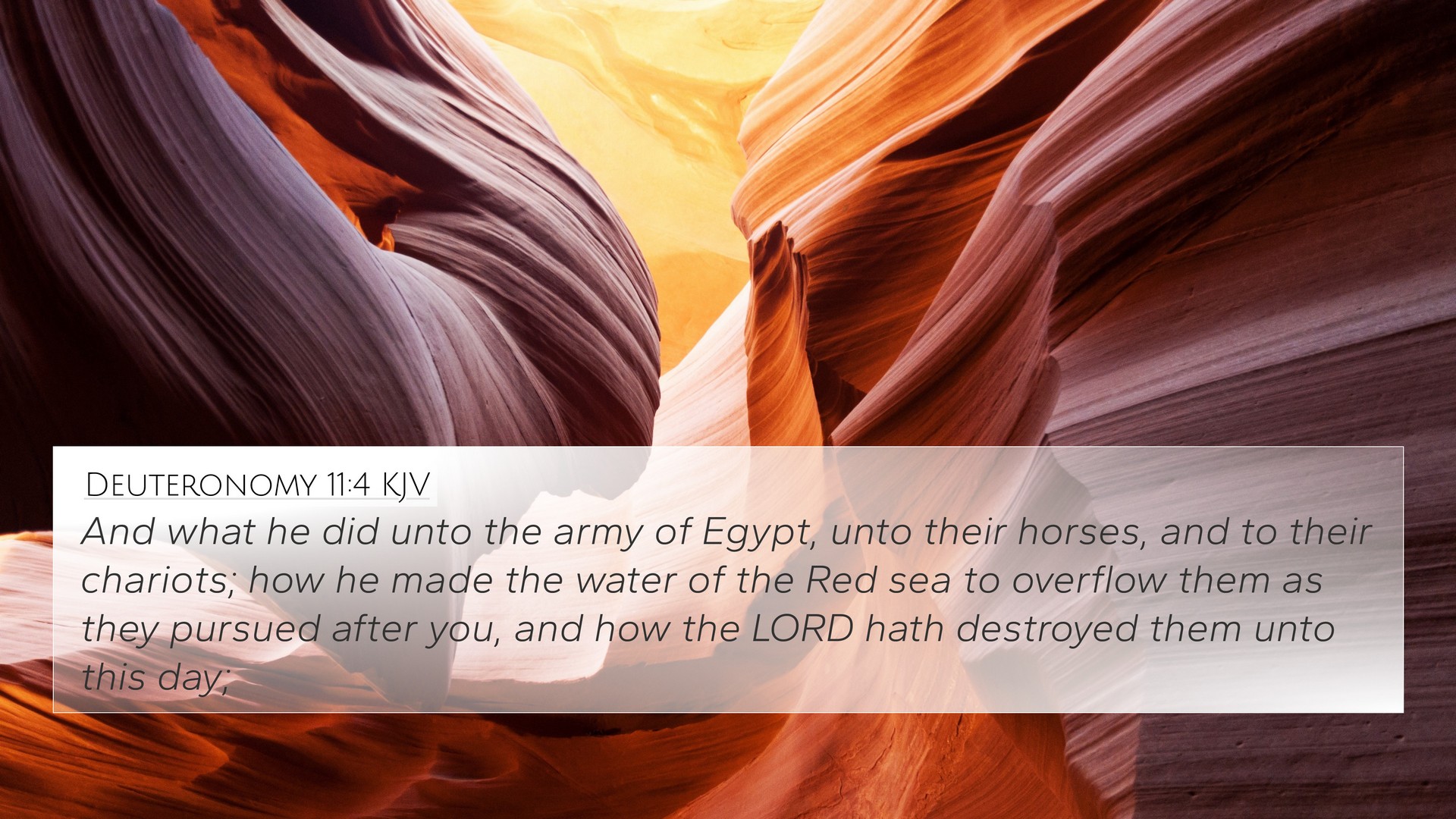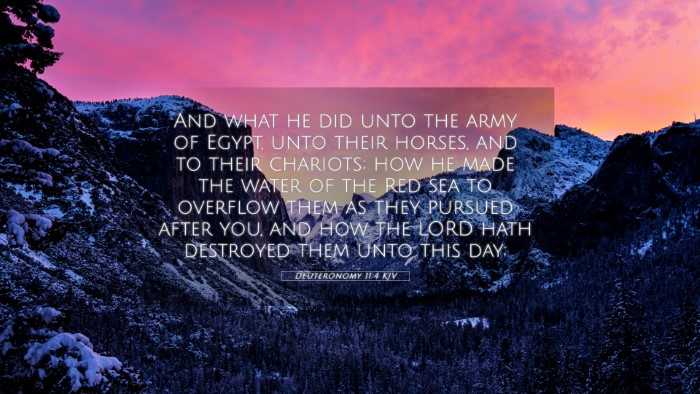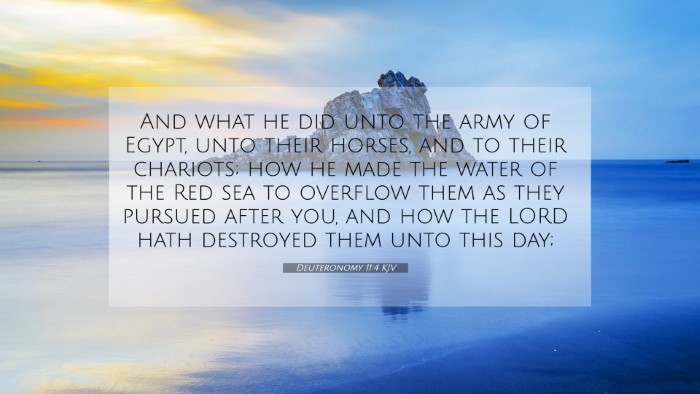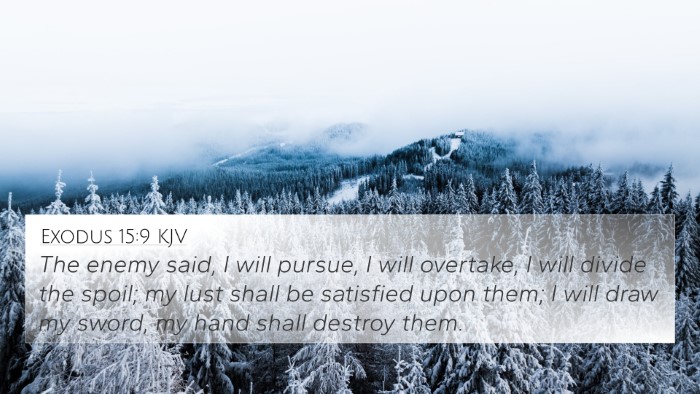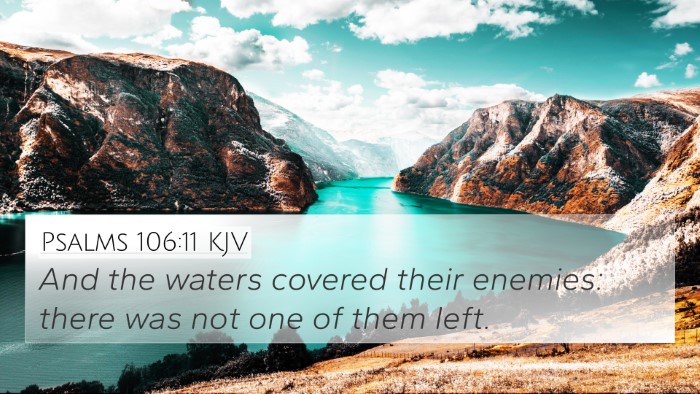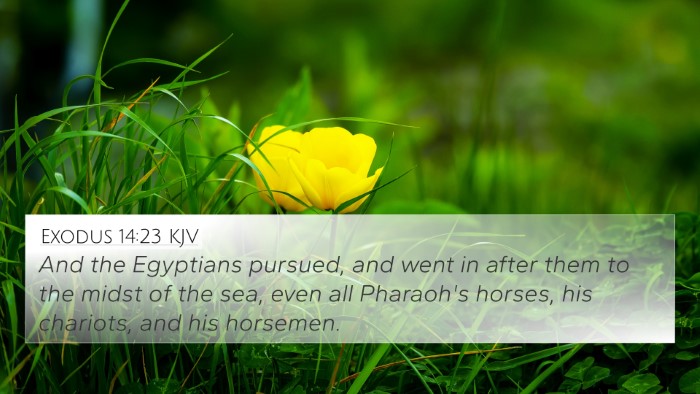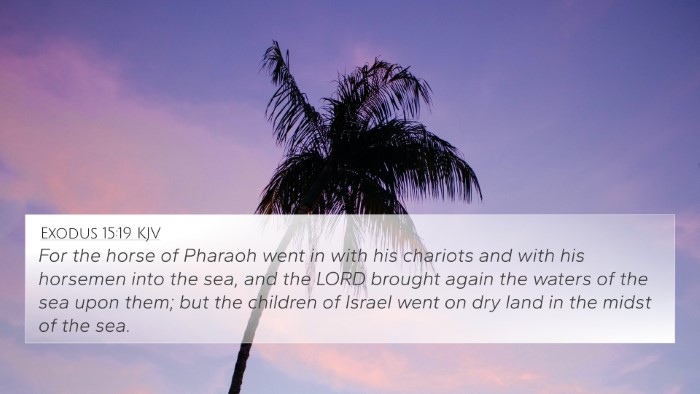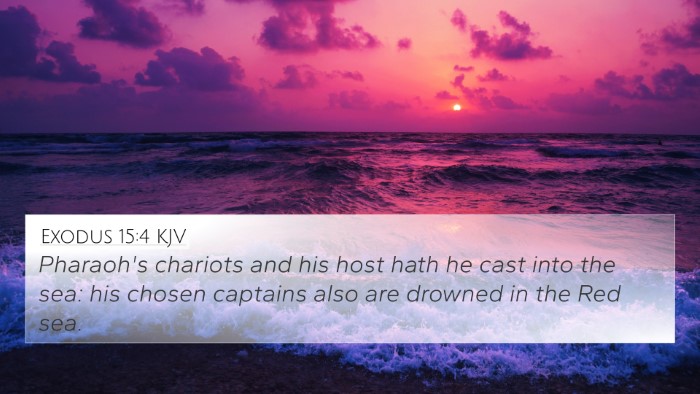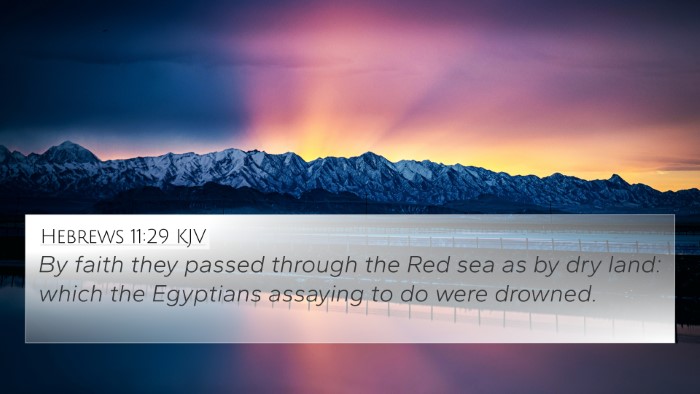Understanding Deuteronomy 11:4
Deuteronomy 11:4 states:
"And what he did unto the army of Egypt, unto their horses, and to their chariots; how he made the water of the Red sea to overflow them as they pursued after you, and how the LORD hath destroyed them unto this day;"
This scripture serves as a powerful reminder of God's deliverance and judgment, encapsulating crucial themes found throughout the Bible. Below, we explore the meanings derived from various public domain commentaries and highlight connections to other scripture.
Verse Meaning and Context
In this verse, Moses is reminding the Israelites of the miraculous events of their past, particularly the parting of the Red Sea, where God demonstrated His power by delivering His people while raining judgment upon their enemies. This historical account serves both as a lesson and a reassurance of God's faithfulness.
Insights from Commentaries
- Matthew Henry: He emphasizes the protective nature of God’s intervention and the assurance it gives to believers. Henry notes the importance of recalling past victories to inspire faith in God’s continued deliverance.
- Albert Barnes: Barnes highlights the significance of this event as a demonstration of divine justice. He reflects on how this account serves as a warning to the Israelites about the consequences of disobedience.
- Adam Clarke: Clarke points to the fact that this event should invigorate the faith of the Israelites. He interprets it as not merely a historical event but as a theological cornerstone that affirms God's loving sovereignty over His people.
Thematic Bible Verse Connections
The themes found in Deuteronomy 11:4 resonate throughout various parts of scripture. Here are several cross-references that relate to this verse:
- Exodus 14:21-22: The crossing of the Red Sea, highlighting God's miraculous deliverance.
- Psalm 106:9-11: Reflects on God’s act of parting the waters and saving Israel from their enemies.
- Isaiah 63:11: Reminder of God leading His people through the sea and the distinction made between them and their oppressors.
- 1 Corinthians 10:1-2: Paul references the crossing of the Red Sea as a baptism into Moses, connecting the Old Testament event with New Testament theology.
- Hebrews 11:29: Illustrates the faith of Israel in crossing the Red Sea as an act of belief in God’s power.
- Joshua 2:10: Rahab speaks of God's power and how the fear of Israel has spread amongst their enemies, connecting to the victory talked about in Deuteronomy 11:4.
- Romans 8:31: Assurance that if God is for us, who can be against us, echoing the theme of divine protection seen in Israel's escape.
Scriptural Cross-Referencing Techniques
Cross-referencing serves as a tool for deeper understanding of the Bible. By identifying connections, readers can see themes that persist throughout scripture. Here are tips on how to effectively employ these:
- Use a Bible Concordance: A concordance helps find specific verses that contain similar keywords or themes.
- Study Thematic Connections: Look for verses that share common themes, such as deliverance, faith, or obedience.
- Explore Contextual Links: Understanding the historical and cultural context of verses can shed light on their connections.
- Apply Cross-Reference Guides: These can provide organized ways of exploring relevant verses across the Old and New Testaments.
- Engage in Comparative Bible Studies: Thematic and content comparisons can uncover deeper meanings and relationships between texts.
Conclusion
Deuteronomy 11:4 serves as a poignant reminder of God's power and faithfulness displayed in history. It encourages believers to trust in God's ultimate authority and protection. By utilizing biblical cross-references, one can gain a richer understanding of this verse and its interconnections with the broader biblical narrative.
For those studying the Bible, exploring the relationships between verses can reveal profound truths and strengthen one’s faith. By examining the cross-references and thematic elements, we become more attuned to the ongoing dialogue found throughout scripture.
